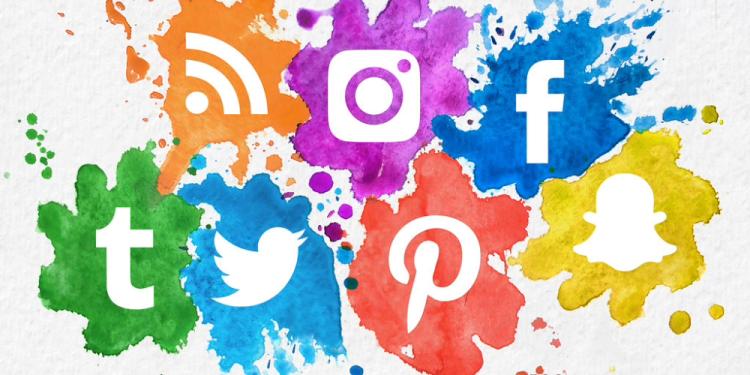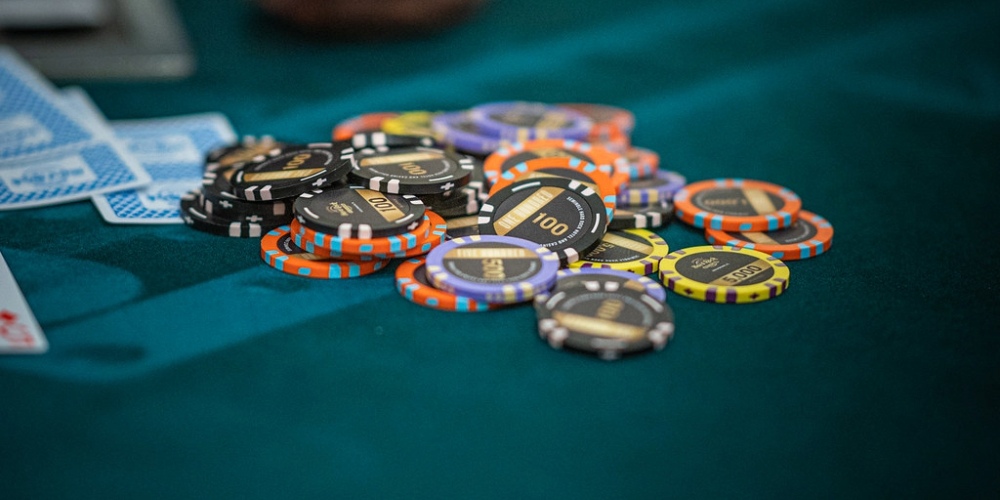Gambling And The Media – The Influence Of Popular Culture
Posted: December 11, 2023
Updated: December 11, 2023
Whether film or literature, gambling is often portrayed as a glamourous and positive expereince. Winning is seen as part and parcel of the whole gambling process. However, reality is very different. Sadly, the unrealistic bature of gambling that's shown in the media has an unrealistic knock-on effect for would-be gamblers.

Gambling is deeply rooted in American society and has a long history. How it went from being illegal to becoming a legitimate industry was greatly affected by how it’s shown in movies, books, and media. This Gamingzion.com article looks at the different ways gambling and the media affects what people think and do.
Gambling Viewed Through Literature
Throughout history, literature has been a vehicle for delving into the complexities of human existence, frequently exploring the theme of gambling. From timeless classics to contemporary masterpieces, the literary realm presents an array of gambling narratives that contribute significantly to our comprehension of its societal role and its impact on individual lives. These portrayals range from the opulence of F. Scott Fitzgerald’s “The Great Gatsby” to the raw and clandestine poker games depicted in contemporary fiction.
Exploring “The Great Gatsby”
In F. Scott Fitzgerald’s famous book, “The Great Gatsby,” gambling is closely woven into the lively Roaring Twenties. The story shows characters playing high-stakes card games and betting on horse races, reflecting the era’s lavishness and recklessness. Jay Gatsby, the mysterious main character, is known for throwing extravagant parties where gambling is a big deal. These gatherings are all about seeking wealth and a higher social position through gambling.
Gatsby himself is obsessed with becoming rich and often uses gambling to chase his big dreams. Yet, “The Great Gatsby” is also a warning about the dangers of the American Dream. The characters’ obsession with money and achievement leads to them losing their morals, feeling disappointed, and facing tragedies. While gambling seems exciting and attractive in the story, it’s also linked to having unclear morals and feeling empty from chasing material things. So, the novel both glorifies and warns against the tempting appeal of gambling.
The Dual Nature Of Gambling Through Literature
In stories, gambling is shown in two ways that reflect how society sees it. One way is by making it seem thrilling and potentially profitable. Characters taking risks and the suspense in gambling make the stories exciting. This can make people see gambling as an adventurous journey. But in these stories, there’s also a warning about gambling. Characters might suffer a lot because of gambling, like losing money, losing morals, or facing personal tragedies. These stories remind us that gambling is risky and doesn’t guarantee happiness or success.
Gambling And The Media – A Glamorous Portrayal Of Gambling
Entertainment has long been captivated by the allure of gambling, often presenting it in movies and television as a glamorous and captivating pursuit. The lavishness of casinos, the intensity of high-stakes poker matches, and the adrenaline rush from substantial bets are depicted as inherently appealing. Characters are frequently shown as charming, bold risk-takers, contributing to the mystique of gambling.
Cinematic Example – “Casino” And “Rounders”
Two standout films that epitomise the glorification of gambling in Hollywood are “Casino” and “Rounders.” In Martin Scorsese’s “Casino,” Las Vegas serves as a backdrop portraying a city of extravagance where lavish casinos and opulent lifestyles reign supreme. The movie showcases the excessive world of casino ownership and high-stakes gambling, emphasising the allure of wealth and authority. On the other hand, “Rounders,” directed by John Dahl, focuses on the realm of underground poker.
The storyline follows a skilled poker player who reenters the high-stakes poker scene to aid a friend in debt. The film portrays the poker table as a platform to showcase individual skills and strategies, potentially leading to significant monetary wins. It uses gambling and the media to romanticise the notion of gambling as a test of one’s intellect and nerve.
Gambling And The Media – TV Series “Las Vegas”
Television series like “Las Vegas,” which aired between 2003 and 2008, offer an intriguing case study of television’s influence on public perceptions of gambling. According to online gambling news in the US, the series centred on the day-to-day functions of a fictional Las Vegas casino. Though not as engaging as Everygame Casino, it proved to be a popular entertainment, “Las Vegas” played a role in shaping the belief that gambling was a glamorous and potentially lucrative pursuit. It frequently downplayed the negative aspects linked to gambling, such as addiction and financial devastation, potentially leading viewers to develop a distorted view of gambling realities.
How Gambling And The Media Influence Perceptions
Thanks to gambling and the media, these portrayals greatly affect how people see gambling, making it seem attractive and potentially profitable. By presenting gambling as glamorous and thrilling, they make audiences think that gambling can lead to financial success and an exciting life.

However, these depictions often oversimplify the risks and difficulties involved in gambling, creating false hopes and causing some people to behave problematically. Also, the appealing characters in these stories might become role models for some viewers, reinforcing the idea that gambling leads to an exciting and successful life. As a result, these portrayals might make gambling seem normal and even desirable.
News stories and reality shows have a big impact on how people view gambling. News stories about big wins or famous people at casinos make gambling seem thrilling and full of opportunities. But these stories often ignore the less attractive parts of gambling, like addiction or the financial problems it causes for some people. Reality shows such as “World Series of Poker” or “Celebrity Poker Showdown” have made poker popular, showing it as a fun and easy thing to do. These shows might make viewers want to try poker themselves, sometimes giving them too much hope for success.
The Rise of Social Media And Gambling
Social media platforms have become crucial in sharing gambling-related content recently. Websites like YouTube, Twitter (now named X), and Instagram are full of influencers and creators showing their experiences at casinos, poker games, or winning bets. These platforms linking gambling and the media create a feeling of belonging among gamblers and make gambling seem normal. They also make it easy to find gambling-related stuff, which can strongly influence younger people.
Moreover, social media often shows ads for online casinos and sports betting, making gambling a part of people’s online lives. Seeing gambling a lot might make it seem less unusual and more like a regular thing to do. Different types of media have a big effect on how people see and feel about gambling. They can make gambling look usual and exciting, but they can also warn about its risks. It’s important to know how different media sources shape these ideas to understand how gambling affects society as a whole.
Gambling And The Media – Possible Normalisation Concerns
Over time, how people view gambling has changed, mainly because of how the media shows it. For example, when gambling and the media are portrayed as a way to make lots of money, more people might think it’s good and want to try it. But if the news talks about gambling problems or scandals, more people might see gambling as risky. Studies have shown that seeing lots of positive things about gambling in movies or TV can make people want to gamble themselves. Making gambling look fun and profitable can make people curious and want to try it too.
The Connection Between Gambling And The Media
There’s a clear link between gambling and the media. Studies found that people who see gambling in the media are more likely to gamble. This is especially true for young people who are easily influenced by what they see. The way gambling is made normal in movies and on social media makes this connection stronger. However, all of today’s most reputable online casino sites in the US like Everygame Casino take a responsible view on looking after their players. Afterall, it could be argued that the last thing the iGaming industry wants are hourdes of problem gamblers.
Click here to try the live casino at Everygame Casino












